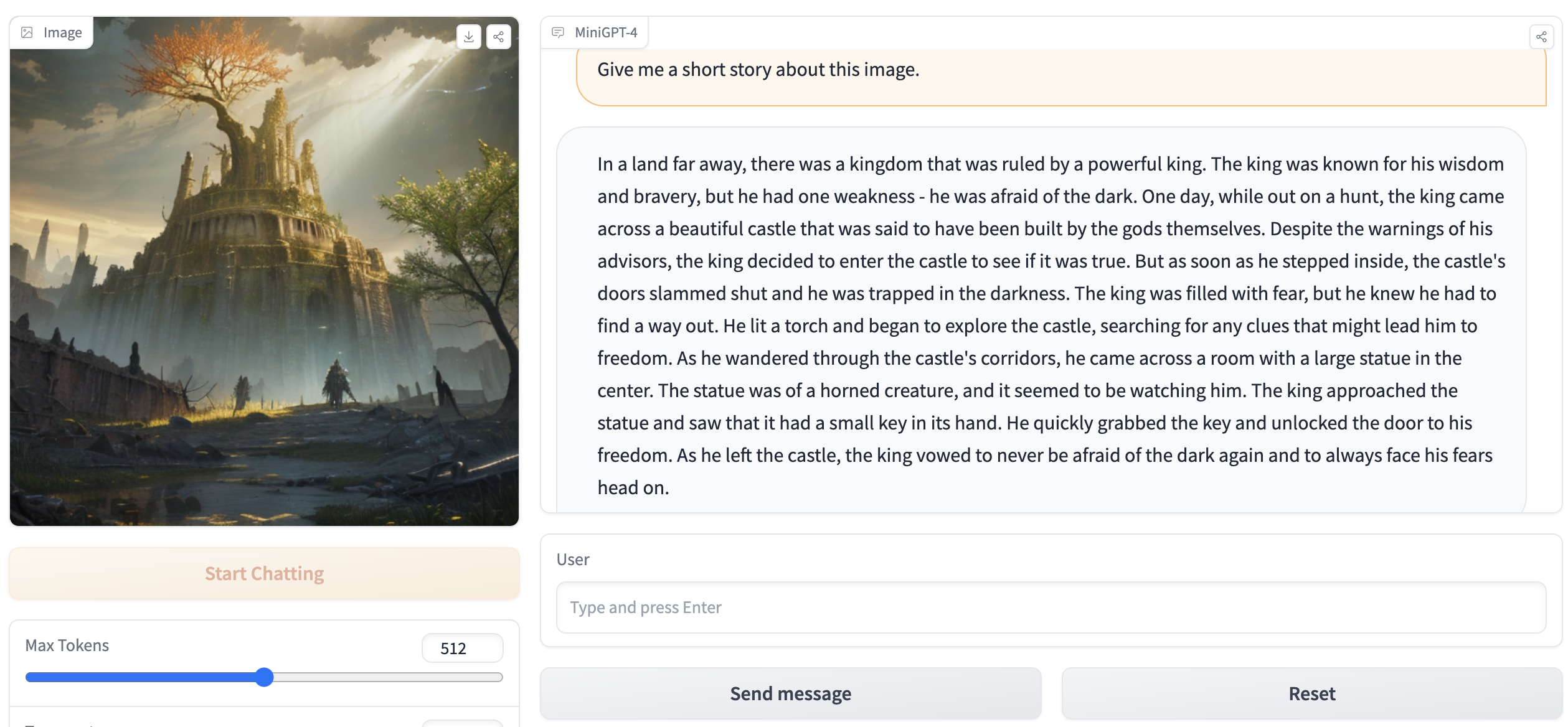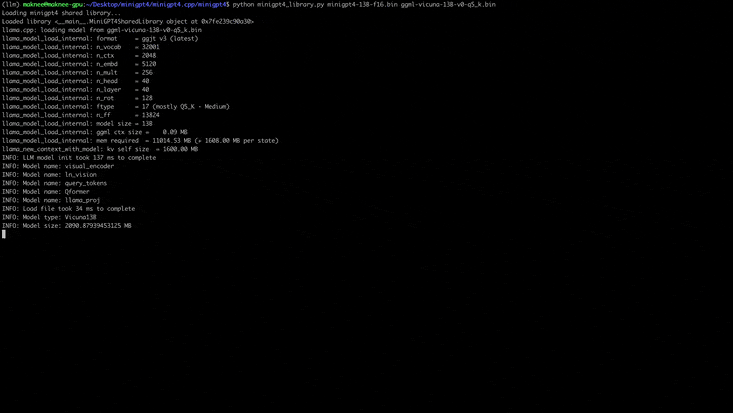Inference of MiniGPT4 in pure C/C++.
The main goal of minigpt4.cpp is to run minigpt4 using 4-bit quantization with using the ggml library.
Requirements: git
git clone --recursive https://github.com/Maknee/minigpt4.cpp
cd minigpt4.cppGo to Releases and extract minigpt4 library file into the repository directory.
Requirements: CMake, Visual Studio and Git
cmake .
cmake --build . --config Release
bin\Release\minigpt4.dll should be generated
Requirements: CMake (Ubuntu: sudo apt install cmake)
cmake .
cmake --build . --config Releaseminigpt4.so should be generated
Requirements: CMake (MacOS: brew install cmake)
cmake .
cmake --build . --config Releaseminigpt4.dylib should be generated
Note: If you build with opencv (allowing features such as loading and preprocessing image within the library itself), set MINIGPT4_BUILD_WITH_OPENCV to ON in CMakeLists.txt or build with -DMINIGPT4_BUILD_WITH_OPENCV=ON as a parameter to the cmake cli.
Pre-quantized models are avaliable on Hugging Face ~ 7B or 13B.
Requirements: Python 3.x and PyTorch.
Clone the MiniGPT-4 repository and perform the setup
cd minigpt4
git clone https://github.com/Vision-CAIR/MiniGPT-4.git
conda env create -f environment.yml
conda activate minigpt4Download the pretrained checkpoint in the MiniGPT-4 repository under Checkpoint Aligned with Vicuna 7B or Checkpoint Aligned with Vicuna 13B or download them from Huggingface link for 7B or 13B
Convert the model weights into ggml format
cd minigpt4
python convert.py C:\pretrained_minigpt4.pth --ftype=f16
python convert.py ~/Downloads/pretrained_minigpt4.pth --outtype f16minigpt4-7B-f16.bin or minigpt4-13B-f16.bin should be generated
Pre-quantized models are avaliable on Hugging Face
Requirements: Python 3.x and PyTorch.
Follow the guide from the MiniGPT4 to obtain the vicuna-v0 model.
Then, clone llama.cpp
git clone https://github.com/ggerganov/llama.cpp
cd llama.cpp
cmake .
cmake --build . --config ReleaseConvert the model to ggml
python convert.py <path-to-model>Quantize the model
python quanitize <path-to-model> <output-model> Q4_1

